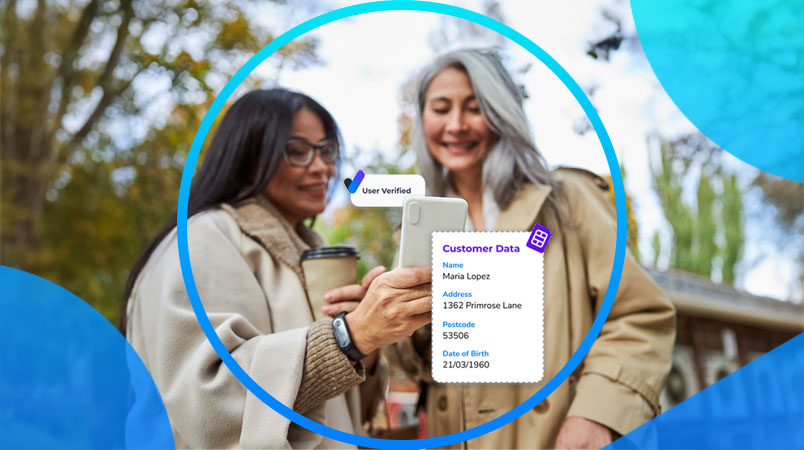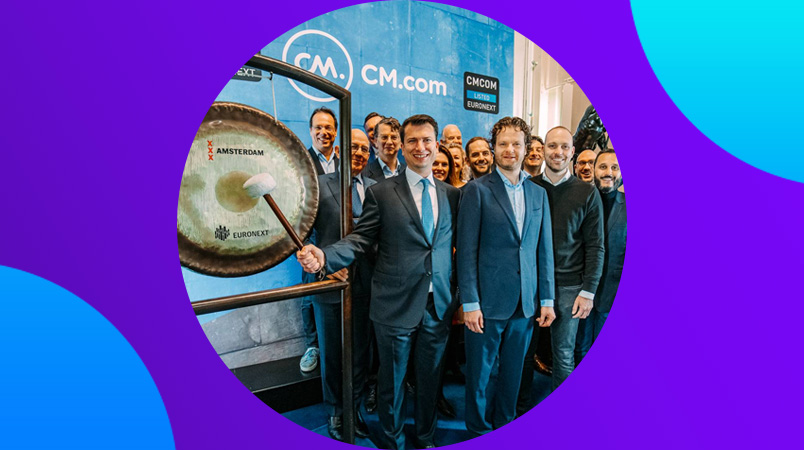The holiday season is here, bringing a valuable opportunity to connect with customers in a more meaningful and personalised way. By using messaging channels like WhatsApp, RCS and SMS, your business can stand out by delivering curated offers, support, smart deals and festive cheer directly to your customers' phones. These interactions can create a memorable customer experience. In this blog, we’ll explore how leveraging these channels can not only enhance customer satisfaction but drive sales during the busiest time of the year.
With cybercrime on the rise and rules and regulations rightfully getting stricter each year, you as a business must keep up with the pace of online security. Traditionally, a lot of organisations apply Multi- or Two-Factor Authentication (MFA or 2FA) to secure accounts and protect sensitive data. And for a lot of cases, it works well. But, to truly know your customers, Mobile Identity Services can help.
Surely, we’ve all heard the terms multichannel and omnichannel before. And sometimes even cross-channel or single-channel. It seems like these terms are often used interchangeably, making it hard to understand what’s what. It is, however, very important to know the difference between these terms when talking about customer communication, because it can truly make or break the customer experience.
Let’s be real, no-one gets into organising events because they’re passionate about data. But the reality is if you don’t take proper care of your attendee data, or even worse give it away to third-party ticketing platforms, you’re undermining all of your efforts. Attendee data provides a treasure trove of insights to draw upon, but only when it’s well-maintained, easy to access and working for you rather than against you. Frustratingly, depending on which ticketing platform you use, that’s not always the case. Not sold that first-party data is the way to go? Let’s explore how having full control of your attendee data can fuel growth and transform your event strategy.
Over the past five years, we’ve made it our mission to stay ahead by adapting quickly to change and seizing new opportunities. Despite the challenges—like the global pandemic—we kept growing by staying flexible and making smart decisions. In this final blog celebrating 25 years of CM.com, we look back at a time when we showed, again and again, how we could offer innovative solutions and strengthen our organisation.
Black Friday is a huge shopping event, drawing crowds of eager shoppers hunting for deals. But after the frenzy fades, the real challenge begins: turning one-time shoppers into loyal, repeat customers. Customer retention is vital for long-term success and post-Black Friday is the perfect time to build lasting relationships. So, how can your business retain customers post-Black Friday? In this blog, we’ll explore how to make it happen.
Securing online accounts, data and users is a must in business today. At least, if you don't want to end up as the next security breach headline in the papers. But simply implementing a few, disconnected security measures isn't always enough. Loose apps and services become vulnerable to fraud and are often cost-inefficient. That's why CM.com now offers a one-stop-shop to safely secure your business: Verification API.
In the same way that growing your event feels inevitable when you’re deep in promo mode and the ticket sales are rolling in, the opposite is true when you don’t have anything specific to promote. The off-season can be a barren time for promoters, short of the marketing ammunition that an upcoming event naturally provides. But it doesn’t have to be. Below, we give you the insights and tactics you need to keep up momentum even when you don’t have any events on sale. If the time has come to put in place a more sustainable event strategy, one that goes beyond the sugar rush of ticket sales and social media growth, then this one’s for you.
The WhatsApp Business Platform pricing is based on conversation categories with corresponding fees, however, recently, Meta has announced some upcoming pricing changes for 2024 and 2025. What does this mean for you and your business? Read all about the pricing model in this blog.
Select a region to show relevant information. This may change the language.








